第12章
When quite a youth he had deserted from a ship trading to La Plata, to enlist in the navy of Montevideo, then under the command of Garibaldi.
Afterwards, in the Italian legion of the Republic struggling against the encroaching tyranny of Rosas, he had taken part, on great plains, on the banks of immense rivers, in the fiercest fighting perhaps the world had ever known. He had lived amongst men who had declaimed about liberty, suffered for liberty, died for liberty, with a desperate exaltation, and with their eyes turned towards an oppressed Italy. His own enthusiasm had been fed on scenes of carnage, on the examples of lofty devotion, on the din of armed struggle, on the inflamed language of proclamations. He had never parted from the chief of his choice -- the fiery apostle of independence -- keeping by his side in America and in Italy till after the fatal day of Aspromonte, when the treachery of kings, emperors, and ministers had been revealed to the world in the wounding and imprisonment of his hero -- a catastrophe that had instilled into him a gloomy doubt of ever being able to understand the ways of divine justice.
He did not deny it, however. It required patience, he would say. Though he disliked priests, and would not put his foot inside a church for anything, he believed in God. Were not the proclamations against tyrants addressed to the peoples in the name of God and liberty? `God for men -- religions for women,' he muttered sometimes. In Sicily, an Englishman who had turned up in Palermo after its evacuation by the army of the king, had given him a Bible in Italian -- the publication of the British and Foreign Bible Society, bound in a dark leather cover. In periods of political adversity, in the pauses of silence when the revolutionists issued no proclamations, Giorgio earned his living with the first work that came to hand -- as sailor, as dock labourer on the quays of Genoa, once as a hand on a farm in the hills above Spezzia -- and in his spare time he studied the thick volume.
He carried it with him into battles. Now it was his only reading, and in order not to be deprived of it (the print was small) he had consented to accept the present of a pair of silver-mounted spectacles from Senora Emilia Gould, the wife of the Englishman who managed the silver mine in the mountains three leagues from the town. She was the only Englishwoman in Sulaco.
Giorgio Viola had a great consideration for the English. This feeling, born on the battlefields of Uruguay, was forty years old at the very least.
Several of them had poured their blood for the cause of freedom in America, and the first he had ever known he remembered by the name of Samuel; he commanded a Negro company under Garibaldi, during the famous siege of Montevideo, and died heroically with his Negroes at the fording of the Boyana. He, Giorgio, had reached the rank of ensign -- alferez -- and cooked for the general. Later, in Italy, he, with the rank of lieutenant, rode with the staff and still cooked for the general. He had cooked for him in Lombardy through the whole campaign; on the march to Rome he had lassoed his beef in the Campagna after the American manner; he had been wounded in the defence of the Roman Republic; he was one of the four fugitives who, with the general, carried out of the woods the inanimate body of the general's wife into the farm-house where she died, exhausted by the hardships of that terrible retreat. He had survived that disastrous time to attend his general in Palermo when the Neapolitan shells from the castle crashed upon the town. He had cooked for him on the field of Volturno after fighting all day. And everywhere he had seen Englishmen in the front rank of the army of freedom. He respected their nation because they loved Garibaldi.